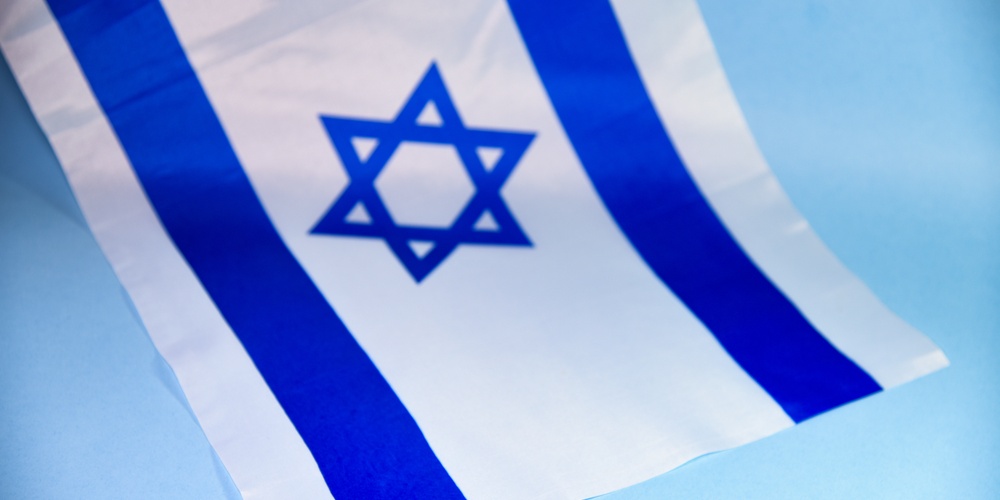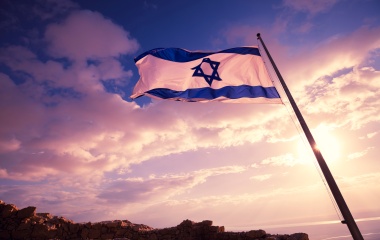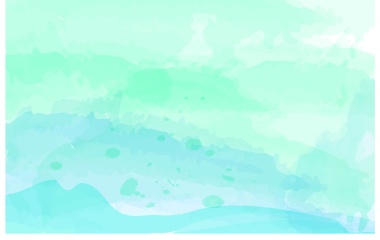
When speaking at a wedding, brit, bar or bat mitzvah and the like, one generally looks to the parsha of the week to find some connection. Some are obvious, some demonstrate great insight and some might even be contrived. As we celebrate Yom Haatzmaut we turn to parshiot Acharei Mot and Kedoshim as we mine the Biblical text for insight into our daily lives. (Surely in celebrating Yom Haatzmaut we are to look at the Torah reading in Israel and not those done outside the land)
Acharei Mot begins by recounting the tragic and unexplainable deaths of Nadav and Avihu. This is the pre-requisite that enables the High Priest to enter the Holy of Holies to gain atonement on Yom Kippur. Yom Haatzmaut is celebrated in the context of Yom Hazicharon, by recalling the tragic deaths of 22,320 who died so we - both in Israel and the Diaspora - can live. In follows in the aftermath of Yom Hashoah where we mourn the tragic and incomprehensible deaths of 6 million of our people. But as Aharon demonstrated before us death may not and cannot prevent us from reaching even greater heights, from intensifying our efforts for life. And it the celebration of life, the individual and the national that is at the core of Yom Kippur and Yom Haatzmaut. After death we must celebrate life.
“After the doings of the land of Egypt, where you dwelt, you shall not do; and after the doings of the land of Canaan, where I bring you, you shall not do; neither shall you walk in their statutes” (Vayikra 18:3).
The Torah exhorts us to recall that G-d is taking us to the Land of Israel so that we can set up a different type of country than others. The Jewish State is not to be like Egypt where people are subjugated, oppressed and denied basic human rights. It is not to follow in the footsteps of the people of Canaan - where man is sacrificed to the gods of molech, where superstition, witchcraft and idolatry abound. We were to create a society where justice, compassion and holiness in all spheres of life are our mantra. And it was only such that would ensure that G-d not spit us out of the land.
“Speak unto all the congregation of the children of Israel, and say unto them: You shall be holy; for I the Lord your God am holy” (Vayikra19:2). Acharei Mot, after death comes Kedoshim, holiness. If Acharei Mot tells us what we must avoid in establishing a State parshat Kedoshim teaches what we must do to build that society. It is as Rashi says the parsha that contains “the majority of the essence of the Torah”. And while Rashi may be referring to the particular mitzvoth there is no doubt the land of Israel - always but especially in our day and age - is the place where majority of the essence of Torah and Jewish life lie. Technically it is the only place where so many mitzvoth can be applied, both individual and of course national. It is the only place we can fully build a society where justice, compassion and holiness in all spheres of life is our mantra. It is here that it is even more crucial that “we love our neighbours” - who are often so different than us - “as ourselves”.
It is the place where the Jerusalem Talmud’s (Nedarim 9:4) explanation of not taking revenge is so much more relevant. The Jewish people are, the Talmud Yerushalmi explains, one body. Just as it is inconceivable for the right hand to avenge the left hand for causing it pain so too it must be inconceivable for one Jew - be they on our right or left - to take revenge against another.
The Ramban famously notes the Torah cannot detail how we are to act in each and every situation. It can guide us but we must apply those principles to our daily lives. Every day brings new challenges, new opportunities in this holiest of lands, issues which there is very little direct guidance in our tradition. We must have the insight, the patience and cooperation to face these issues in a way that will actualize G-d’s charge at Sinai to be a “kingdom of priests and a holy nation”.
For those of us - myself included - in the Diaspora who will be listening to parshiot Tazria and Metzorah this week there is also a most relevant message. Our Sages teach that the affliction of tzaarat ,which forms the bulk of these parshiot, is a result of lashon hara, negative speech. There is what to criticize about Israel. But we - especially we who have chosen not to make aliyah- must be extremely careful about how, where and to whom such criticism is expressed.
We are one nation. May Jews both in Israel and abroad join in the historic mission of building the most holy of nations in the most holy of lands.



